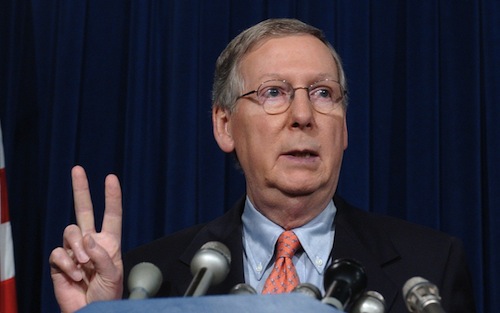Now that the election is over, those of us who try to discern the future via myopic readings of news events—as opposed to via objective analysis of quantitative data, like a jerk—have to find something new to conjecture about. Fortunately, by which I mean to our grave misfortune, there’s that fiscal cliff. If Congress does not reach a deficit-reduction agreement by the end of the month, it will trigger massive automatic cuts to domestic and military spending that coincide with the expiration of temporary tax cuts to wreck our economy. Or Congress can decide that won’t happen, since they’re the ones who put the sequester in place to begin with, but we’re going to pretend that’s not an option. They need to make a deal. What that deal might look like has gotten a little clearer, maybe, depending on how you read this.
Tag Archives: extension
Close readings: Unemployment extension defeated in Congress
Late Thursday night—while the rest of us were having a dream in which we go to the bank and the teller says “Your account has accumulated substantial interest, Mr. Brooks,” before opening a vault full of zombies, zombies—Congress did not pass an unemployment benefits extension. Already we enter the realm of subjectivity. In strict, learn-about-it-in-high-school journalism practice, one is discouraged from constructing stories around what did not happen.*![]() The headline on the AP story—Congress fails to pass an extension of jobless benefits—has the word “fail” right in it, as if passing the bill to postpone expiry of unemployment benefits for one million Americans were something the legislative branch meant to do and just couldn’t put together. In some sense, that’s kind of accurate. The Senate voted 57–41 in favor of the bill, but a Republican filibuster derailed it during procedure. Those are the facts. What happened depends on what news you read.
The headline on the AP story—Congress fails to pass an extension of jobless benefits—has the word “fail” right in it, as if passing the bill to postpone expiry of unemployment benefits for one million Americans were something the legislative branch meant to do and just couldn’t put together. In some sense, that’s kind of accurate. The Senate voted 57–41 in favor of the bill, but a Republican filibuster derailed it during procedure. Those are the facts. What happened depends on what news you read.


